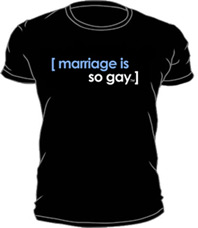Liberals need to stop lying about divorce according to Fox News contributor Steven Crowder.
Crowder apparently believes that liberals are making up statistics that more than half of all marriages end up in divorce so that they can thereby undermine marriage in general. “When you proactively lie to people, insisting that divorce, that failure, is the norm,” Crowder writes, “Well ultimately people will accept it as such.”
So just how pernicious are these awful lies about marriage? According to Cowder,
In response to my latest column supporting young marriage, many leftists brought up what they believed to be a brilliant counter-point in the form of the fifty percent divorce rate. There’s only one problem; it’s not true. As a matter of fact, it’s less true today than it’s ever been in decades. Even worse, the liberals who perpetuate this lie know it.
The last link, to a 2009 article by Betsey Stevenson and Justin Wolfers, attempts to debunk some common perceptions about marriage and divorce. They were responding to a Census Bureau report that claimed more than half of all marriages that occurred between 1975 and 1979 had ended in divorce before reaching their 25th anniversary. But, as Stevenson and Wolfers point out, the study was actually completed 6 months before many of the marriages in 1979 would have reached their 25th anniversary and so was by necessity inaccurate.
When Stevenson and Wolfers looked at the whole picture — adding in the marriages from that final 6 month period — they found that, in fact, 53 percent of the marriages entered into between 1975 and 1979 reached their 25th anniversary.
So there you have it. As Crowder notes, when liberals tell you that more than 50 percent of marriages end in divorce, when in fact it is only 47 percent, they are part of a monstrous lie designed to shatter people’s faith in marriage as an institution.
Oddly enough, Crowder is an advocate of marriage at a relatively (given current standards) young age. He got on the marriage kick when responding to a particularly dumb Huffington Post article suggesting that the minimum age of marriage be raised to 25.
But there’s hardly a need for such stupid measures when adults are starting to opt out of marriage at such a young age of their own accord. According to the 2009 Census report that Crowder links to, for example, in 1986 only 26.9 percent of women aged 25-29 had never been married. By 2009, that figure jumped to 46.8 percent.
The median age at which men and women first get married has shot up dramatically over the past 6 decades,
Since the 1950s, the median age at first marriage has risen for both men and women, increasing from 23 for men and 20 for women in 1950, to 28 for men and 26 for women in 2009.
Which probably goes a long way to explaining why divorce peaked around 1980 and has since leveled off. People wait longer to get married and, in many cases, end up breaking off cohabitation arrangements that previously would have likely led to marriages and subsequent divorce. As the Census report puts it,
As marriage rates have decreased and cohabitation has become more common, marriage has become more selective of adults who arebetter off socioeconomically and have more education, and divorce rates have leveled. These changes are reflected here in decreasing proportions ever divorced for ever-married women at younger ages. While 19 percent of ever-married women aged 25 to 29 had divorced in 1996, 14 percent had divorced in 2009—a decrease of about 30 percent.
